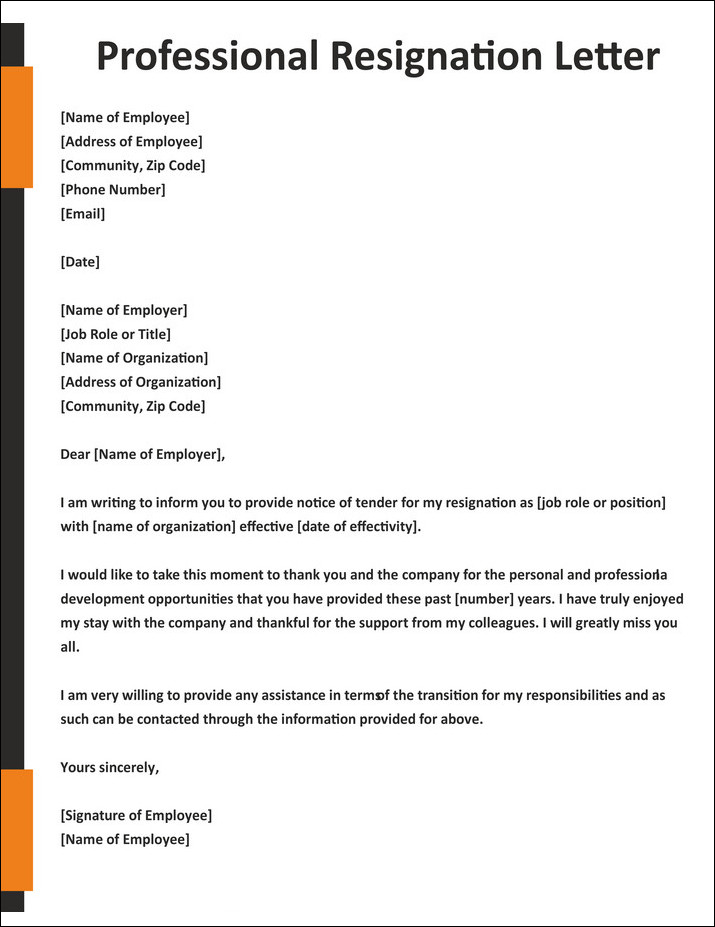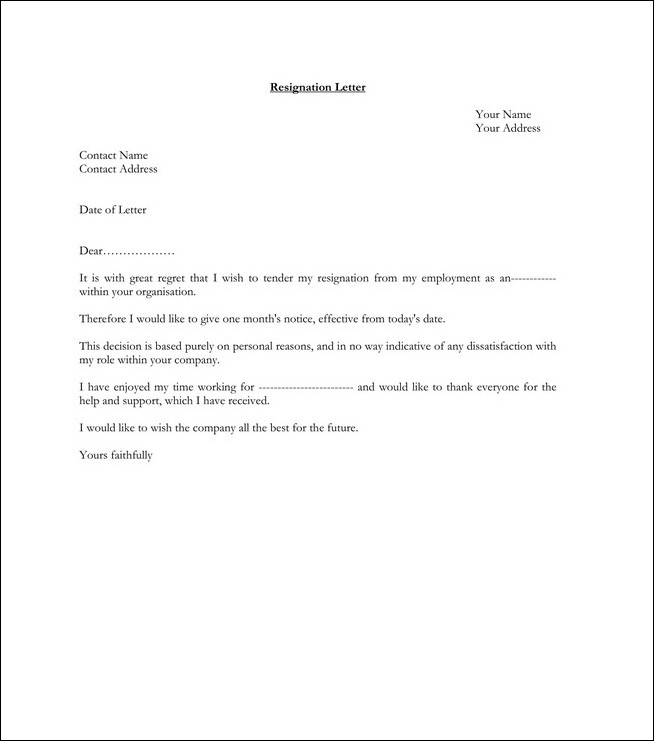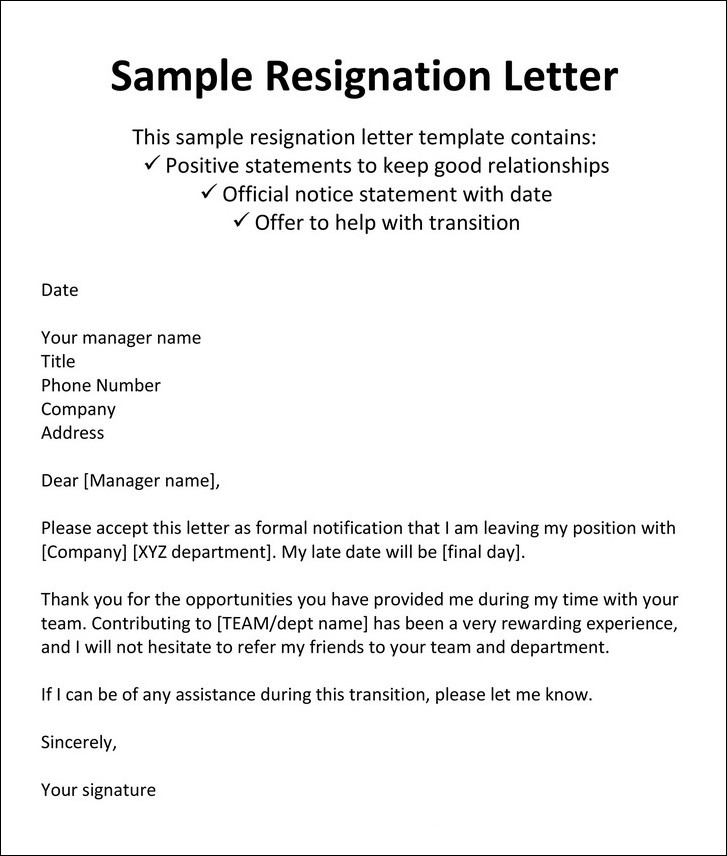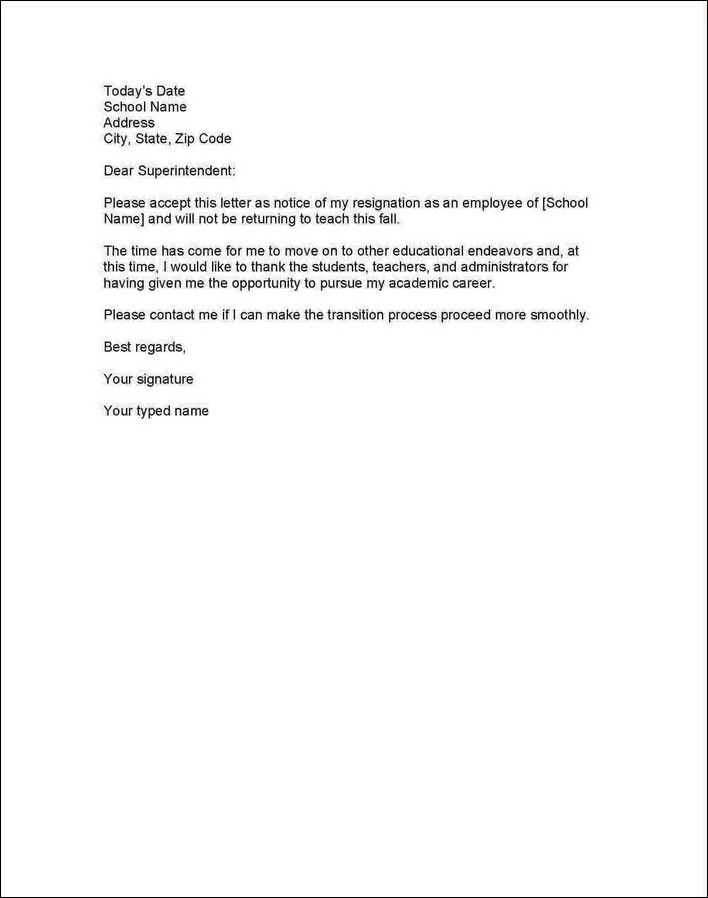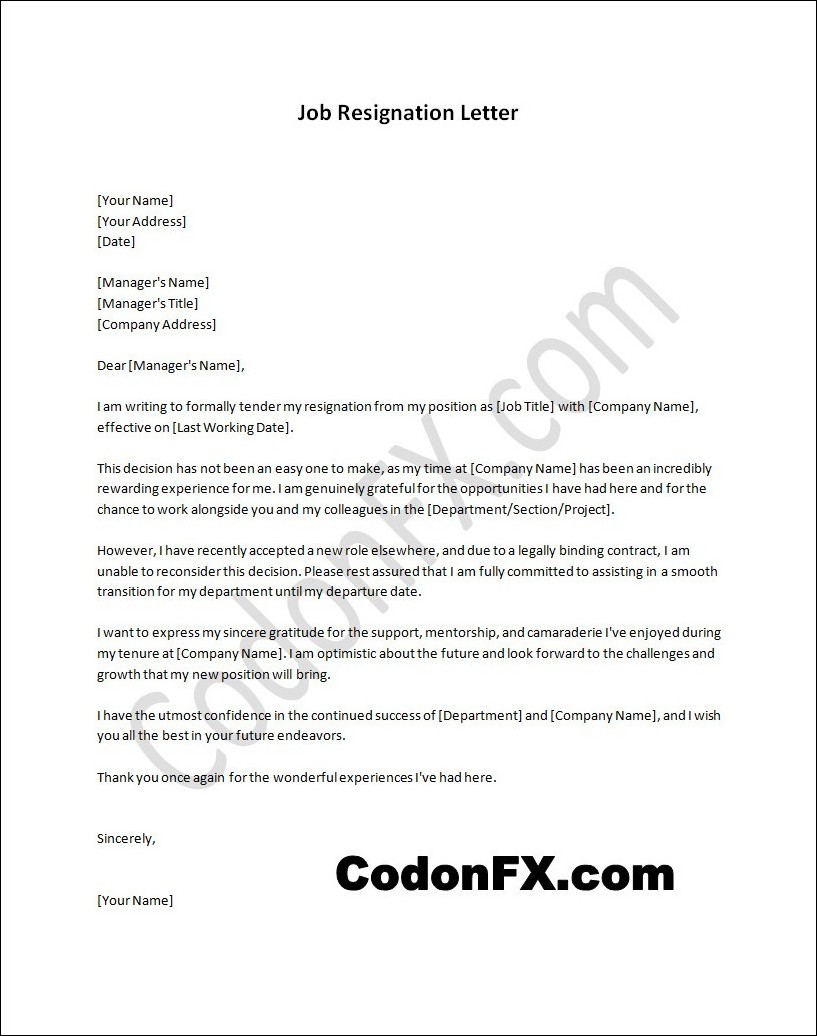
A job resignation letter serves as a formal communication between an employee and their employer, indicating their intention to leave the company. It is an essential document that allows employees to gracefully exit their current positions while maintaining a professional relationship with their employer.
In this article, we will delve into the purpose and benefits of using a resignation letter template, discuss what to include in such a letter, provide useful tips for creating an effective one, and even offer a sample to guide you through the process. Whether you’re resigning from a long-term position or a short-term job, understanding the significance of a resignation letter and knowing how to create one can greatly contribute to a smooth transition and a positive outcome for all parties involved.
What is a job resignation letter?
A job resignation letter is a formal document that an employee writes to inform their employer about their decision to leave the company. It serves as a professional way to communicate the employee’s intention to resign and provides details about the effective date of resignation.
Based on the time, the resignation letter is divided into sort or two-week notice or even 1-month notice resignation letter. Each type has its own purpose and benefits.
Whether you’re a teacher or nurse, or if you’re planning to retire from a job, a resignation letter is very important. The main purpose of a job resignation letter is to officially notify the employer of the employee’s decision to resign. It is essential to provide the letter in writing to ensure there is a record of the resignation. The letter should include the employee’s name, position, and the date of submission. It is also customary to express gratitude towards the employer for the opportunities and experiences gained during the employment period.
A job resignation letter helps in organizing the transition process for both the employee and the employer. It allows the employer to plan and make necessary arrangements to fill the vacant position. But there is also a type of immediate-effect resignation letter that requires the employer to make the transition as soon as possible.
Moreover, the resignation letter can also be used as a reference for future job applications or as evidence of the employee’s intention to leave the company in case of any legal or contractual obligations.
Benefits of job resignation letter
There are several benefits to writing a job resignation letter, including:
- Clear communication: A job resignation letter allows you to clearly communicate your intentions to your employer. It provides a written record of your decision to leave the company and the effective date of your departure. This helps avoid any confusion or misunderstandings about your resignation.
- Professionalism: Writing a job resignation letter demonstrates professionalism and respect for your employer. It shows that you value your time with the company and want to leave on good terms. By providing a formal notice, you leave a positive impression and maintain a professional reputation.
- Documentation: Having a job resignation letter serves as documentation of your resignation. This can be important for future reference, such as when applying for new jobs or if any legal issues arise. It provides proof that you followed the proper protocols and fulfilled your responsibilities as an employee.
What to include in a job resignation letter?
When writing a job resignation letter, it is important to include certain key elements to ensure a smooth transition and maintain a professional relationship with your employer. The following are the essential components that should be included in a resignation letter:
- Date: Begin the letter by including the current date at the top.
- Recipient: Address the letter to your immediate supervisor or the appropriate person in the organization who needs to receive the resignation.
- Statement of Resignation: Clearly state your intention to resign from your position and include the effective date of your resignation.
- Reason for resignation: While not mandatory, providing a brief explanation for your decision to leave can be helpful for your employer to understand your perspective.
- Express gratitude: Take the time to express your appreciation for the opportunities and experiences you have had during your employment.
- Offer assistance: Show your willingness to assist with the transition process by offering to train your replacement or provide any necessary handover documentation.
- Contact information: Include your contact information so that your employer can reach out to you if needed.
By including these important elements in your job resignation letter, you can ensure that your departure is handled professionally and that you leave on good terms with your employer.
What to include in a job resignation letter?
There are a few more things to consider including in your resignation letter:
- Offer to help with the transition: Let your employer know that you are committed to making the transition as smooth as possible by offering your assistance.
- Request for a reference: If you had a positive experience with your employer, it is appropriate to request a reference letter or recommendation for future job opportunities.
- Return of company property: If you have any company property in your possession, such as keys, identification badges, or equipment, mention that you will return them before your departure.
- Request for a meeting: If you feel it is necessary, you may request a meeting with your employer to discuss any outstanding matters or to provide additional information.
- Signature: End the letter with a professional closing and your signature.
Taking the time to include the necessary components and following proper resignation letter etiquette will help ensure a positive and respectful departure from your current job.
Tips to create a job resignation letter
To ensure that your resignation letter is effective and well-received, consider the following tips:
- Be clear and concise: When writing your resignation letter, it is important to be clear and concise about your intentions. State your decision to resign and include the date of your last working day. Avoid unnecessary details or lengthy explanations.
- Express gratitude: Show appreciation for the opportunities and experiences you have gained while working for the company. Thank your employer for the support and guidance provided during your tenure.
- Offer assistance: Express your willingness to assist with the transition process. This can include training your replacement or providing any necessary information to ensure a smooth handover.
- Maintain professionalism: Even if you have had a negative experience at the company, it is important to maintain professionalism in your resignation letter. Avoid expressing negative emotions or criticizing the company or colleagues.
- Keep a copy: Make sure to keep a copy of your resignation letter for your records. This can be useful in case there are any issues or disputes in the future.
By following these tips, you can create a job resignation letter that effectively communicates your decision to leave the company while maintaining a professional and respectful tone.
Job Resignation Letter Template | Word – Download
